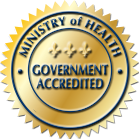According to the National Institute on Drug Abuse (NIDA); alcohol is the second most commonly abused substance in the world. The American Medical Association (AMA) has determined alcoholism as a disease. Alcohol addiction problems vary in severity; from mild to life threatening and affect the individual, their family, and society in numerous undesirable ways. Despite the focus on drugs such as cocaine, crystal meth or heroin; alcohol remains the number one drug problem in Canada. According to community surveys, an estimated 4 percent of the population over the age of 15 is dependent on alcohol.
Alcohol abuse is defined by the DSM-IV, as a psychiatric diagnosis describing the recurring use of alcoholic beverages despite negative consequences refers to excessive or problematic use with one or more of the following:
- Failure to fulfill major obligations in the home, school or at work
- Drinking alcohol in situations where it is dangerous (such as driving a car or operating machinery)
- Problems with the law
- Continued use of alcohol despite having problems socially, with family, or interpersonal problems caused by or worsened by drinking
Alcohol dependence as described in the DSM-IV is a substance disorder in which an individual uses alcohol despite significant areas of dysfunction. There needs to be at least three out of seven of the following criteria must be evident during a 12 month period:
- Tolerance
- Withdrawal symptoms or clinically defined Alcohol Withdrawal Syndrome (AWS)
- Use in larger amounts or for longer periods than intended
- Persistent desire or unsuccessful efforts to cut down on alcohol use
- Time is spent obtaining alcohol or recovering from effects
- Social, occupational and recreational pursuits are given up or reduced because of alcohol use
- Use is continued despite knowledge of alcohol-related harm (physical or psychological)
There are family members who often minimize or deny alcohol problems and may inadvertently contribute to the alcoholism by well-meaning (enabling) behaviours such as protecting the alcoholic from the adverse consequences of their drinking. They may do so by taking over family or even economic responsibilities. Often because of this the drinking behaviour is concealed from loved ones and even health care providers.
When alcoholics are confronted about their drinking, often they will deny it. Alcoholism is a unique disease where it is often influenced by the personality of the alcoholic and other factors. As a result, signs and symptoms often vary from person to person. However certain signs and behaviours indicate someone may have a problem with alcohol. These include insomnia, frequent falls, bruises, blackouts, chronic depression, anxiety, irritability, tardiness or absence at work or school, loss of employment, divorce or separation, financial difficulties, frequent intoxicated appearance or behaviour, or frequent automobile collisions.
There are medical symptoms that may show up later such as alcoholic cardiomyopathy (heart disease), anaemia, central pontine myelinolysis (brain degeneration), cerebellar atrophy, cirrhosis, confusion, gastritis, gastrointestinal bleeding, hallucinations, Korsakoff’s dementia, malnutrition, neuropathy, pancreatitis, peptic ulcers, seizures, and Wernicke’s encephalopathy (abnormal brain functioning).
If you have any questions about alcoholism affecting you or your loved one please contact Sobriety.ca Foundation and speak with one of our caring addiction counsellors at 1-888-999-8101.










